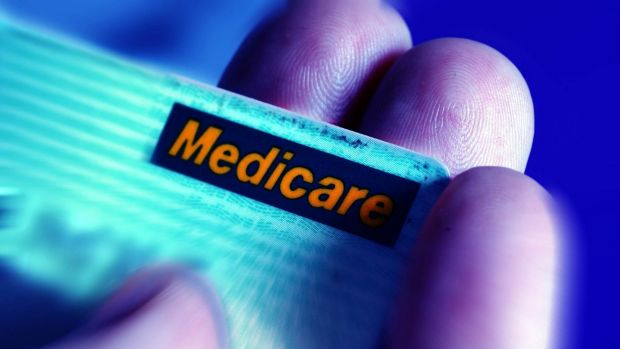
Government cuts to medicare rebates could unnecessarily drive patients in to emergency departments, or make them forgo treatment Photo: Peter Braig
West Australian hospital emergency departments could be overrun by patients seeking free healthcare if Federal Government cuts to the Medicare rebate lead to higher GP fees.
That’s according to Australian Medical Association WA president Michael Gannon, who said the move to cut the rebate by $20 could see the state’s poorest people forgo doctors visits, or seek free treatment for common ailments at already busy public hospital emergency departments.
From Monday, the Medicare rebate for short consultations – those lasting less than 10 minutes – will be slashed by $20.10, from $37.05 to $16.95.

Australian Medical Association WA president Michael Gannon has voiced his concern about the cuts Photo: Bohdan Warchomij
Each year, millions of patients visit GPs for short consultations, generally for minor conditions, new prescriptions or blood pressure checks.
The change is estimated to make Medicare a $500 million saving in 2015.
Dr Gannon said feedback from “upset” and “angry” GPs in WA indicated some doctors may stop bulk-billing short consultations because the reduced rebate could force fees up, threaten the viability of general practice and, ultimately, the existence of doctors in low socio-economic areas.
“Our concern is that…there is a significant body of working poor out there who will think twice before going to the doctor rather than pay gaps of $10 or $20 and if that happens it will compromise their health,” Dr Gannon told Fairfax Media on Wednesday.
“General practice as it exists in Australia is a very value-for-money, preventative health measure. And if people don’t see their GP, their health problems will worsen and they will end up in emergency departments, in hospitals where their care ends up being a lot more expensive.
“Emergency departments are set up to look after genuine emergencies. They are set up to look after traumas, they’re not staffed to deal with the issues that GPs deal with.”
Dr Gannon said inadvertently pushing patients into hospital emergency departments for more affordable care would ultimately have a greater cost.
“This latest proposal will threaten the viability of general practices and I believe it will further exacerbate the imbalance of where GPs are,” he said.
“Unfortunately, it will become more attractive for GPs to practise in wealthier areas of the city rather than working in the regions, working in poorer areas.”
On Wednesday, Prime Minister Tony Abbott defended the government’s decision telling Fairfax Radio it had been a difficult decision that had been made to ensure Medicare’s sustainability.
However, the change to the Medicare rebate could be voided by the Senate when Parliament resumes in February, with the Greens supporting a disallowance motion and other senators concerned about the impact of the rebate cut.
Comment has been sought from the WA Health Department and WA Health Minister Kim Hames.
